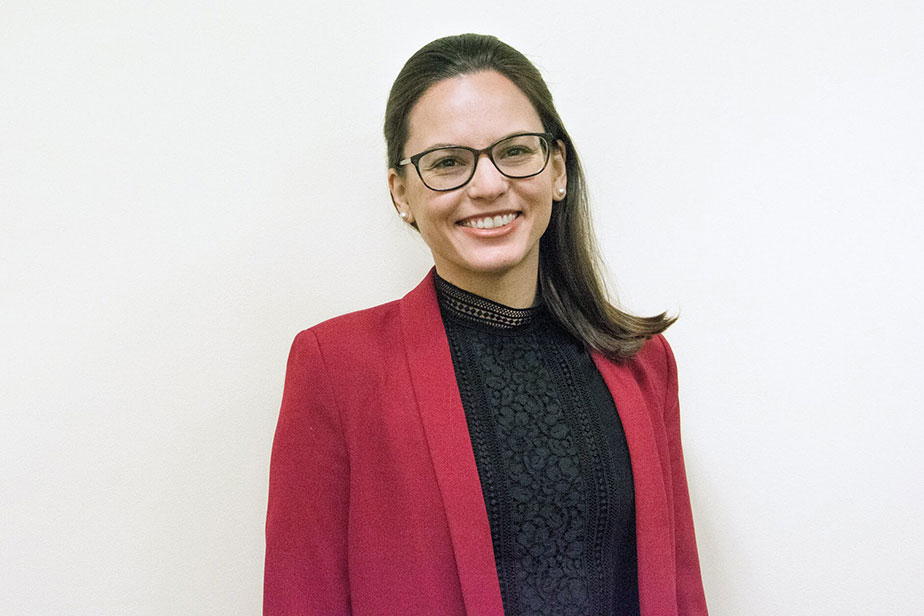Natasha Távora Baker, JD ’17, was published in Volume 22: Issue: 2 of the Journal of Juvenile Law & Policy. The journal is “a biannual publication of the UC Davis School of Law that addresses the unique concerns of youth in the American legal system.”
“Rehabilitation via Arbitrariness: Why Commitment as a Dispositional Option in Washington, D.C.'s Juvenile Justice System Should Be Abolished” challenges long-standing structures in the local juvenile justice system. It proposes ending “commitment” - one of the sentences youth can receive in the DC juvenile justice system - as a means of better protecting children’s rights, promoting rehabilitation, and addressing racial and socioeconomic disparities. “This article began as a writing assignment for a juvenile justice seminar I took my 2L year,” Ms. Baker shared. The class was taught by now-retired Professor Stephanie Ridder. “The class absolutely contributed to my desire to pursue a career in juvenile justice, particularly on the defense side,” she added.
Ms. Baker’s interest in law began when she was an undergraduate student studying political science and Hispanic studies. She was president of Boston College’s Amnesty International chapter, and through that work, she found her senior thesis topic: the war on terror and enhanced interrogation techniques. “I became fascinated (and horrified) by the power of the state over people's bodies. What does it mean to be in the custody of the government? What can the state do to me?”
She began to ask herself those questions in the context of the criminal justice system years later when she was living in Brazil. “I lived in a very unsafe area and it provoked these questions about what makes neighborhoods unsafe and what causes crimes. And the more I looked into it, the more I understood the criminal justice system's role in perpetuating violence, as well as racism and classism. I realized that there were many Americans who also lived in unsafe areas, and I wanted to change that.”
While at GW Law, Ms. Baker gained experience as a student-attorney in the Prisoner & Reentry Clinic during her 2L year. “That experience cemented my desire to pursue criminal and juvenile defense work,” she said. Following her clinical experience, Ms. Baker worked as a research assistant to Jessica K. Steinberg, Associate Professor of Clinical Law and Director of the Prisoner & Reentry Clinic, for two semesters. Her work with Professor Steinberg remains a strong influence in her legal career.
For students who wish to follow in a similar path, Ms. Baker encourages them to intern every semester and summer after their 1L year. “Do a clinic if you can, but if not, intern with an organization that will provide direct client contact and firsthand experience in what the criminal and/or juvenile justice systems are like.” She believes that experience and passion are what matter most for students wanting to pursue work for a public interest organization such as a public defender office or a legal aid organization.
For students seeking legal writing experience, Ms. Baker recommends finding an internship that will provide that opportunity or becoming a research assistant to a professor. “I never participated in a journal and I was not on moot court, and yet I am published in a journal and am doing the work I wanted to be doing. If you're willing to put in the work, don't be afraid to chart your own path in law school.”
Ms. Baker also reminds students that timing matters. “Papers published as a law student don't have much weight, but that doesn't mean you should not pursue research as a student. In my case, what started out as a student paper became a published piece, and because it was published once I became a barred attorney, other scholars will be more inclined to read it and cite to it.”
Ms. Baker plans to use her research to evaluate her career options and to build her portfolio within the juvenile justice space. She also hopes her article can serve as a case study for improving juvenile justice across the country. “So much of what happens in the juvenile justice system is arbitrary and arbitrariness harms kids. It is present not only in the types of tools used but how and when they are used. I want to figure out ways to improve the justice system so that it can actually live up to its name of being ‘just.’”
Ms. Baker is currently a Skadden Legal Fellow at Open City Advocates where she provides post-disposition representation to youth in the Washington, DC juvenile justice system.


